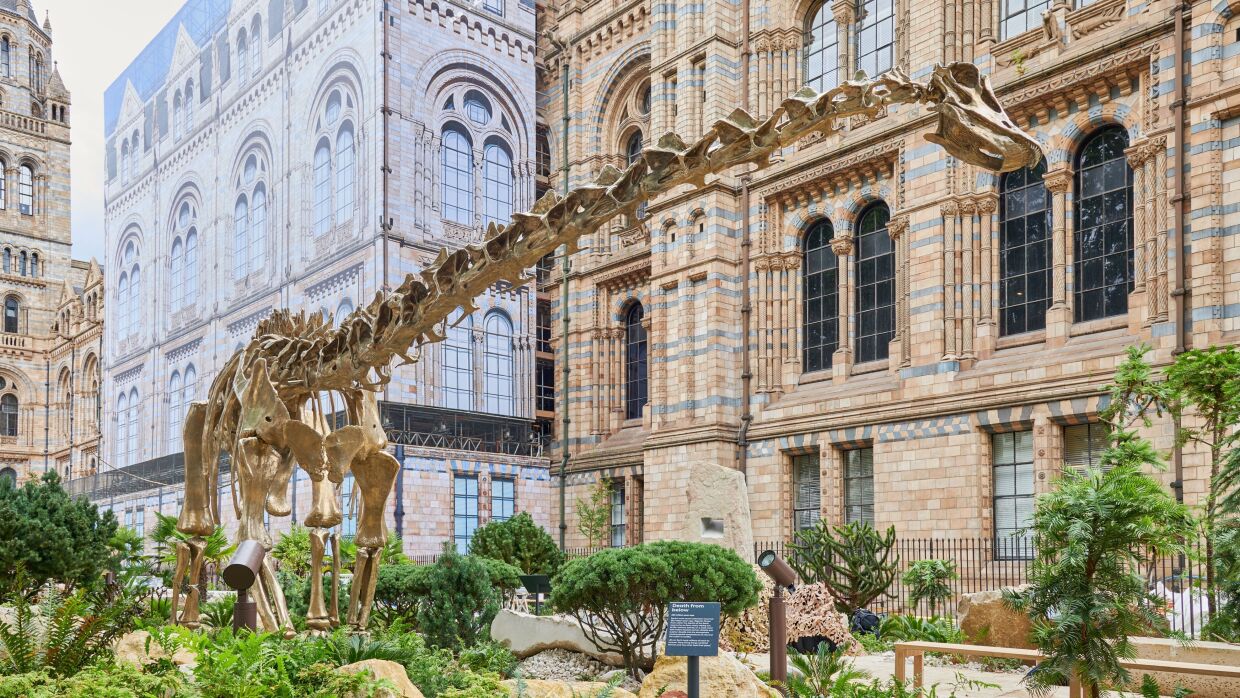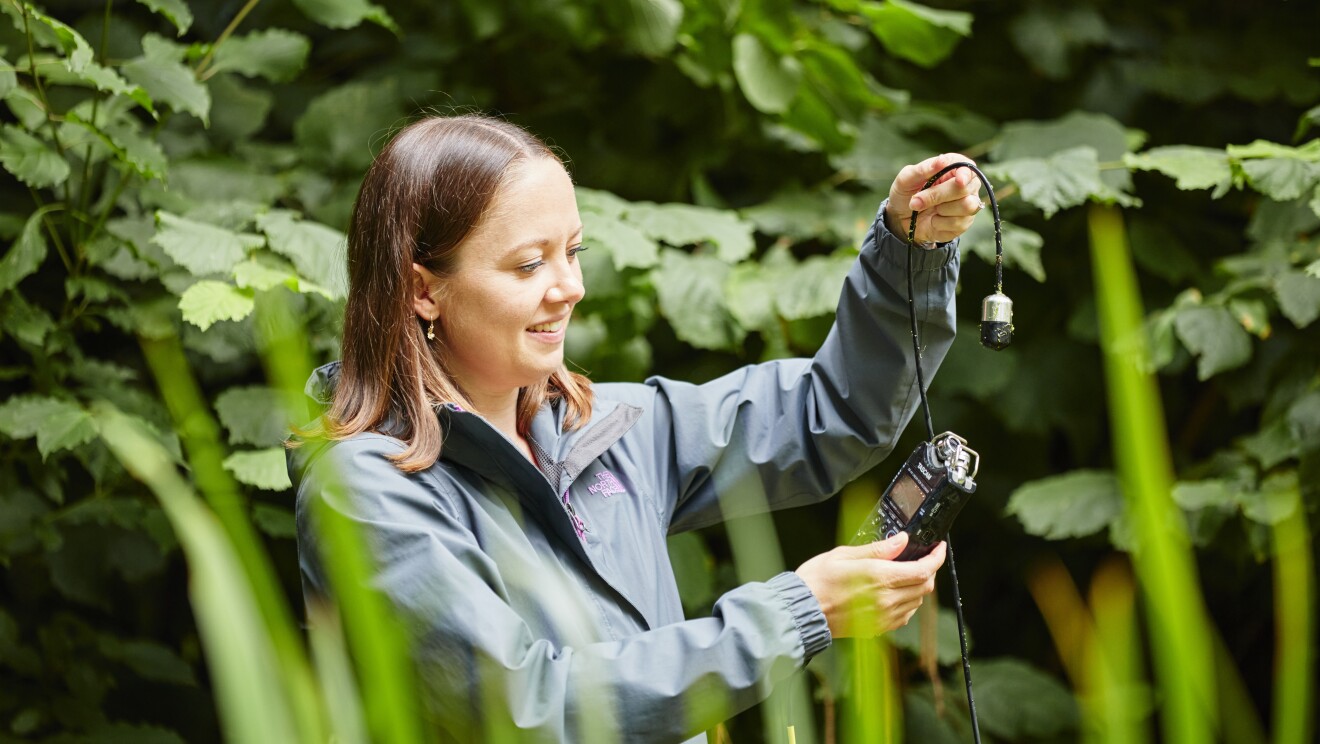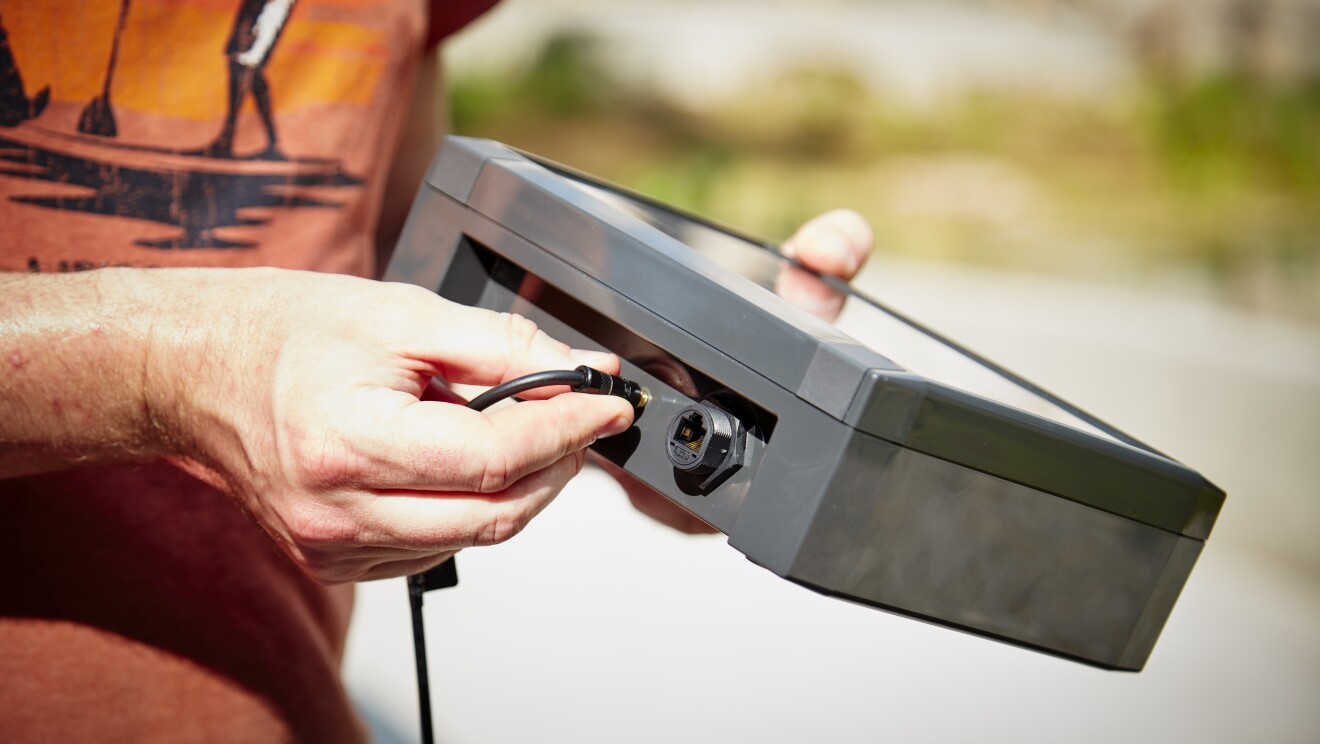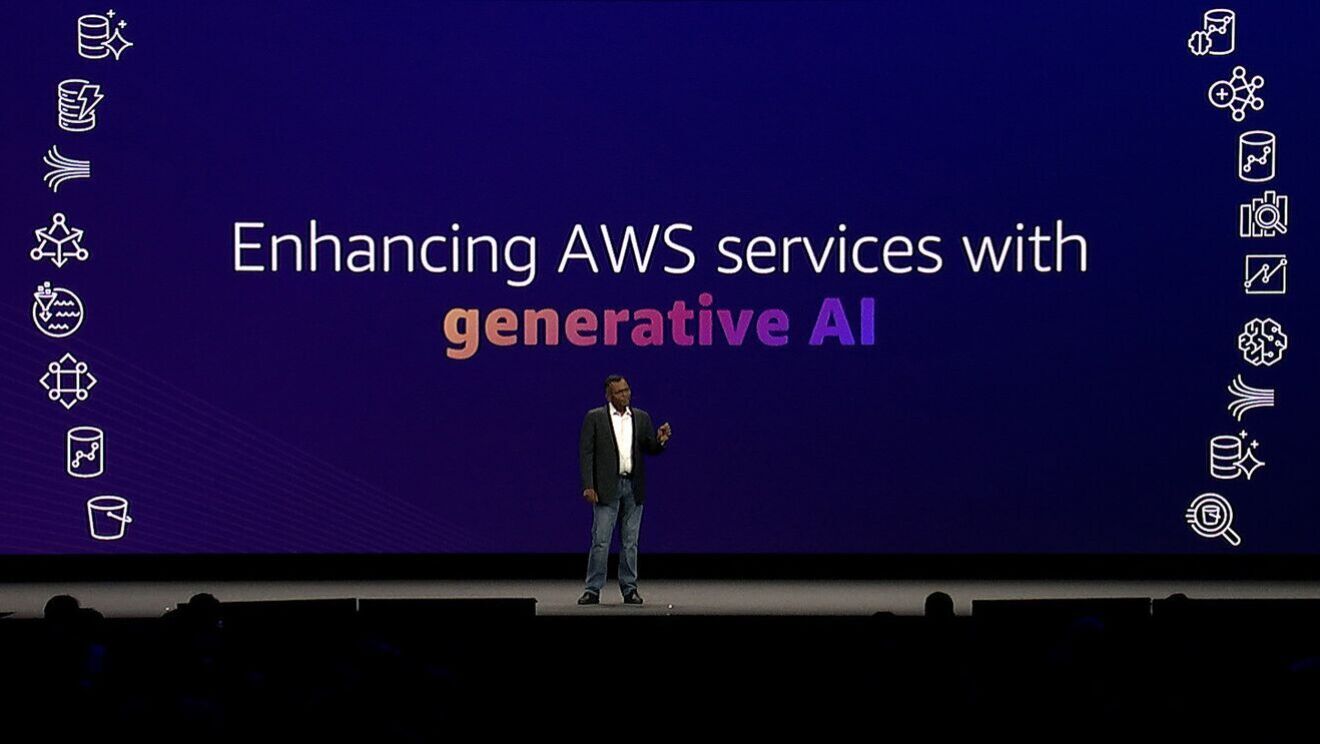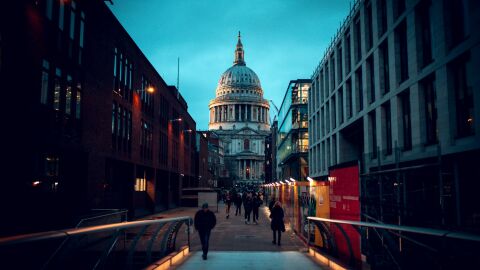A new, free-to-visit garden at London’s Natural History Museum has transformed the area around the Museum’s grounds. The gardens – which will open to the public on 18 July – will feature a network of sensors, giving the Museum’s team of more than 350 research scientists unprecedented access to a wealth of biodiversity and environmental data.
The Museum is working in partnership with Amazon Web Services (AWS), to enrich and accelerate this vital work. The data collected from the gardens will be fed into the Museum’s new Data Ecosystem, a data platform, built using AWS cloud technologies.
One of the most studied urban sites of its kind in the UK
The garden-turned-living laboratory is fitted out with a network of 25 sensors that will collect a wide range of environmental data – from underwater recordings in a pond, to bird calls and traffic noise. This data will all be collated, enriched and shared in the Natural History Museum’s new Data Ecosystem. Once fully installed, the network of sensors in the gardens will collect up to 20 terabytes of audio data in the first year. The Museum’s researchers will leverage this new wealth of data through machine learning (ML), making it easier and quicker to reach conclusions and practically support UK urban nature recovery.
Dr John Tweddle, who heads up the Angela Marmont Centre for UK Nature, explains why the gardens will boost biodiversity research in London as well as educating and entertaining the public: “Because of our partnership with AWS, the Natural History Museum will become one of the most well-studied urban biodiversity settings in the UK, maybe even in the world. This will become a benchmark study site for understanding the impact of urban environments on wildlife, and one that we hope other organisations around the world can use.”
“The museum opened in 1881 and we’ve never had a coherent plan for the gardens,” he said. “The new gardens will now tell the story of the evolution of life on Earth, but will also reflect on the impact that humans have had on the landscape as well as the incredible wealth of wildlife we can find around us in towns and cities – some of it may be new to London or even new to science.”
A Data Ecosystem to study urban biodiversity
In addition to collecting data from the new garden, the Data Ecosystem will also process and make available data from the Museum’s community science projects, like the Nature Overheard programme, in which community scientists record audio in their local area to help uncover the impact of road noise on insect populations. This audio can now be centralised to give scientists even deeper insights into biodiversity on both a local and national level.
To date, 156 audio recordings have been uploaded from Nature Overheard onto the Data Ecosystem. This is in addition to over 57,000 visual wildlife observations – taken from historic data from the Museum’s wildlife gardens going back to 1995 – which have already been added.
“We are delighted to work with the Natural History Museum to use digital technology to build a better scientific understanding of the UK’s biodiversity and identify the solutions to support the recovery of nature in urban environments,” said Tanuja Randery, Europe, Middle East, and Africa Managing Director at AWS.
“The new Data Ecosystem, built on AWS, is already transforming and accelerating the Museum’s scientific research and community science capabilities, helping scientists to collaborate and access data through a secure and scalable platform. As the gardens open, we will continue to see the amount of data available to the Museum’s scientists grow in volume and richness.”

A centralised solution to foster collaborative research
For the first time, the Museum’s scientists have a way to securely store and process research data using the Data Ecosystem, which can easily scale up as more and more data is collected over time. According to Dr Tweddle, that data is already helping biodiversity researchers to take a more joined-up approach when collaborating with other scientists studying urban biodiversity in different areas of the country.
“Data is the fundamental currency when it comes to understanding how and why nature is changing,” he said. “Over the years, we have been officially tracking wildlife to see what we have here in the UK and the changes that are taking place. In that time, we have actually been able to observe a few new species to the UK, and we’re hoping that the new technology and automated monitoring we have now with AWS will help us to discover more.”
Reflecting on past efforts, Dr Tweddle said: “As scientists, we haven’t always worked as one team. We’ve worked as independent researchers, each building their own data solutions for each and every new project. With AWS, we are creating one centralised data solution for all of our UK-focused biodiversity programmes, which will allow researchers across the country to collaborate in new ways we’ve not been able to before.”
From 18 July, the garden will be open daily from 10am. Visitors should book a free ticket in advance online for guaranteed entry to the museum.
Read more about Amazon’s commitment to sustainability.


